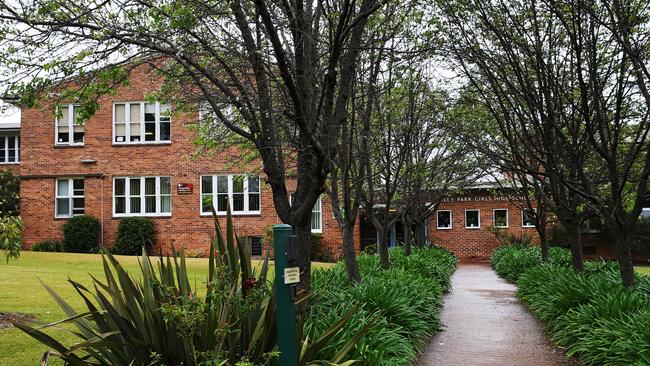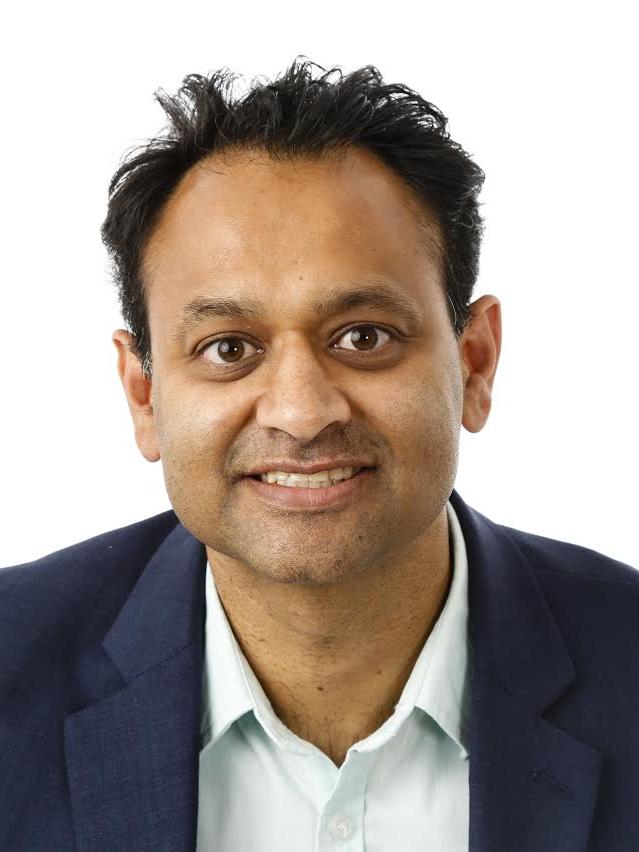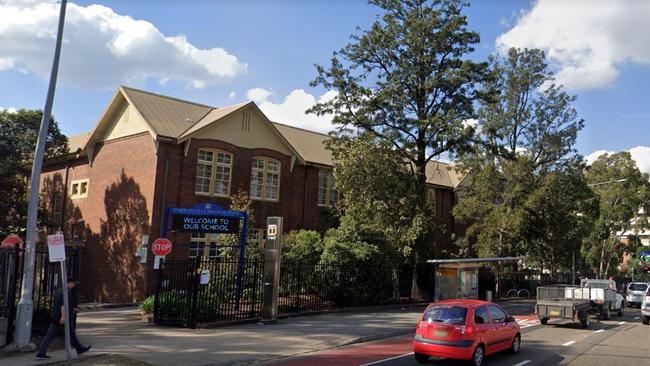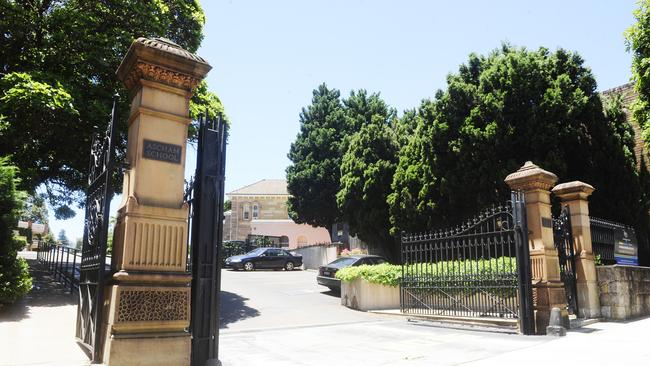Some private schools claim HSC disability provisions on ‘pretty shaky’ grounds, doctor warns
Dozens of private schools claimed HSC disability provisions for more than a quarter of their students last year, with a psychiatrist conceding some applications appear dubious. See the full list here.
Education
Don't miss out on the headlines from Education. Followed categories will be added to My News.
Dozens of high-fee private schools claimed disability provisions in the HSC exams for more than a quarter of all their students last year while numerous public schools in Sydney’s west claimed them for just a few students or not at all.
Private school principals have called for the process to be made fairer for public school kids while psychiatrists say affluent parents are behind the push to diagnose a child so they can obtain extra time in exams.
Pricey schools charging in excess of $30,000 a year including Ascham, Queenwood, Trinity Grammar and Pymble Ladies College all obtained permission to give more than a quarter of their students sitting the HSC last year disability provisions, official NSW Standards Authority data shows.
And of the 123 schools which claimed disability provisions for 20 per cent or more of their students, 95 of those (three quarters) were from private or catholic schools.
Those students got more time to complete their exams, rest breaks, “feeding breaks”, extra time to stand or stretch or were able to use a personal computer instead of writing with a pen and paper.
By comparison, Western Sydney schools like Parramatta High, Sefton High and Wiley Park Girls claimed disability for just two students. Punchbowl Boys did not claim any whatsoever last year.
The NSW Standards Authority decides if a student meets the criteria after reports from medical specialists have been submitted to them. A school also provides evidence to support applications which can include reading results, spelling results, writing samples and teacher comments.

Psychiatrist Dr Tanveer Ahmed labelled the discrepancy between sectors as “growing source of injustice”.
“There is a lot of pressure on doctors — I am filling out these forms every day — sometimes it feels pretty shaky,” he said.
“The HSC is a test of being performed under time limits and pressure, it is a test, and increasingly people are being rewarded for a diagnosis with extra points or other advantages.
He said those diagnosed with a condition requiring special provisions were usually from affluent middle class families and in his experience, had not had any issues previously.

“It is interesting how people who had no problem before and suddenly, in year 11, there’s a lot more impetus from parents to extract a diagnosis,” he said.
“It reflects that some of the private schools are trying to compete with the selective schools.”
Numerous schools approached by The Daily Telegraph did not reply to questions about why they had such a high rate of disability provisions.
Principal of St Vincent’s College in Potts Point Anne Fry, where 26.9 per cent of the cohort claimed provisions, said the government should make them more accessible for public school children.
“The bigger story here is not that our students are accessing the system rather that other students are not using the NSW Standards Authority process,” she said.
“Perhaps the solution sits with reforming the HSC so it is intrinsically fairer for everyone.”
Across the board, applications for special provisions from public schools were up by 27 per cent since 2019 and up 31 per cent for private schools.

Education Minister Sarah Mitchell welcomed that boost to public school applications.
“The application process is rigorous and while NSW Standards Authority do a good job administrating it, I will be encouraging them to make sure that all applications are in line with requirements,” he said
PLC Armidale principal Nicola Taylor, where 40 per cent of the cohort of 20 students sitting the HSC last year claimed disability provisions, attributed the high rate to increased mental health issues in rural communities.

“In regional NSW, we have gone through a record period of drought, they were a cohort who were impacted by record drought, bushfires, mice plagues and now floods,” she said.
“There is an increase in generalised anxiety, for some of the students, that would not be a disability they had endured all through their schooling.”
She said the process was rigorous.
“The student themselves needs to write a supporting statement and the impact that it is having from them, the teachers themselves have to be able to validate if the provision of any provision is warranted. And parents themselves have to fund the cost of the assessment or reports that are required.”
.




